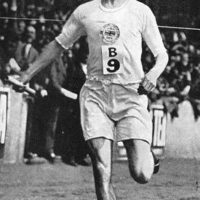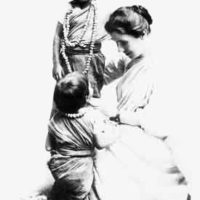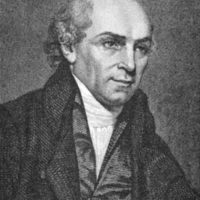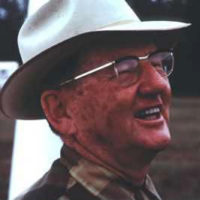“If Jesus Christ be God and died for me, then no sacrifice can be too great for me to make for Him.” – C.T. Studd
Early Life of C.T. Studd
Charles Thomas Studd (C.T. Studd) was born in England on December 6, 1860. In 1877, his father Edward converted to Christianity while attending a Dwight L. Moody revival meeting.
 As he grew up, C.T. became a skilled cricket player. Throughout England, his name became famous. Yet, he knew something was missing.
As he grew up, C.T. became a skilled cricket player. Throughout England, his name became famous. Yet, he knew something was missing.
Edward Studd was concerned for the spiritual welfare of his boys. Often times, he would come into their room to ask them if they wanted to accept Christ. On occasions, the boys pretended they were sleeping so they wouldn’t have to listen to him.
On some occasions, Edward would have revival preachers over and host meetings in the house. His hope was that C.T. and the two other boys would accept Christ. One by one, the revival preachers came through and still nothing seemed to change in the boys’ lives. People were saved but Edward was unsatisfied with the results in his boys’ lives.
He Couldn’t Answer
One day in 1878, Edward hosted a preacher in his house. While C.T. was on his way to play cricket, the preacher came up to him and started talking. C.T., however, did not want to talk. The preacher asked him if he believed in Jesus, and C.T. said yes hoping to get rid of the preacher. The preacher then inquired if C.T. believed he would obtain eternal life when he died. C.T. was stunned. He had no answer. He was living for himself and believed nothing would happen after he died. After the preacher explained about Jesus and what He did on the cross, C.T. and his two other brothers committed their lives to Christ.
Backsliding
For six years after his conversion, C.T. was backsliding. He did not share his faith with anyone even though he attended church and read the Bible. In addition, he pursued the things of this world. In 1884, one of C.T.’s brothers, George became gravely ill. C.T. started questioning his life. What was he doing of eternal value? Playing cricket would not make any impact in people’s lives. After recommitting himself to Jesus, George was healed of his illness.
A New Resolution
After seeing the hopelessness of pursuing honor from this world, C.T. read a pamphlet from an atheist. In the pamphlet, the atheist said that if he believed in what Christians said, he would do anything in his power to reach as many as possible. This inspired C.T. to reach out to others with the good news.
C.T. Studd became part of a group of athletes at Cambridge who met together for Bible study and prayer. They also sought to reach out to other athletes and students on campus with the Good News.
Soon after, C.T. went to a meeting where Hudson Taylor was speaking. When he heard about the lost in China, he along with six other students from Cambridge (known as the “Cambridge Seven”) dedicated their lives to serving China Inland Missions alongside Hudson Taylor.
Family Pressure
Soon after, C.T.’s father died. The family, especially his widowed mother, tried to talk C.T. out of going to China in order to get a good job so he could take care of them. He refused to listen to them, knowing there are greater rewards for those who abandoned everything for Jesus.
In China
The Cambridge Seven left for China in 1885. As soon as they got there, they adopted the Chinese traditional dress. C.T. went around the country and preached the Gospel in evangelistic meetings. He met with much success, and many people gave their lives to the Lord. After one such meeting, a man came up to him and admitted he had broken all of the Commandments. He felt he was beyond the redemption of God. C.T. reassured the man, telling him about Christ’s death on the cross and the grace offered by God. Hearing about what Christ had done for him, the man got baptized on the spot. The new convert decided to go back to his village to ask forgiveness from those who he had done wrong to and share the Gospel with them.
At the age of 25, C.T. received an inheritance from his father. He gave most of the money away to those who helped the poor including George Muller. Three years after going to China, C.T. married Priscilla. C.T. was going to give the remains of his inheritance to Priscilla, but she rebuked C.T. and reminded him of the rich young man. She told him to give everything away to the poor. C.T. gave the rest of the inheritance to the Salvation Army. In 1894, ill health forced C.T. and Priscilla to go back to England.
Back to England
Priscilla and C.T. were welcomed by his widowed mother. The children knew nothing of English customs or language so they had to learn it. Their oldest, Grace, was 5 years old when they returned to England. In the meantime, C.T. was busy. He was invited to speak in America to the Student Volunteer Movement led by his brother. The Student Volunteer Movement was a group to recruit students to go into missions after college. As he spoke to the students, they were interested in what he had to say and asked him many questions. Many of the students committed their lives to serving in foreign missions.
To India
In 1900, C.T. went to South India where he became a pastor. During his time there, he saw three conversions a week. Many of these were British officials and villagers. C.T. preached in India until 1906 when he returned home.
Obstacles to Africa
While living in Liverpool in 1908, C.T. Studd saw a sign which read “Cannibals Want Missionaries.” After seeing the sign, he was convicted that Africa was where God wanted him to go to next. C.T.’s physician would not allow him to go to Africa stating all of the health risks of equatorial Africa. C.T. tried to apply for a mission board but they refused to accept him. C.T. also tried to get funding from a committee of businessman. Since Charles didn’t have the backing of a physician, the committee refused to back him.
C.T. wouldn’t give up, however. He knew God was calling him to Africa, so despite the opposition, C.T. sailed to Africa with Alfred Buxton, another pioneer missionary in 1910. During his trip to Africa, God reassured Charles, that He is with him and would be reward for his obedience. In addition, Charles started his own missionary society called Heart of Africa Missions. C.T.’s family stayed behind in England to take care of the operations of the new mission’s board.
In Africa
During his time in Africa, C.T. went to the Congo in 1913. There he established four mission stations among the natives. At the first public baptism, 12 people were baptized.
After a while, C.T.’s wife became seriously ill, forcing him to go back to England. After she recovered in 1916, C.T. returned back to the Congo. In 1928, Priscilla visited the Congo to see the work being done there. A year after this, she died. C.T. continued his work until the day he passed away in 1931.
Legacy
Having gone to four continents during his life, C.T. was a truly global missionary. Through his work and testimony, many came to know the Lord and others were recruited to be missionaries.





Opposition to our ministry from those who know it least will soon know the assuredity of GOD’S working in our lives. Stay strong in GOD’S Word – be sure of his salvation in you – act on HIS promises alone.